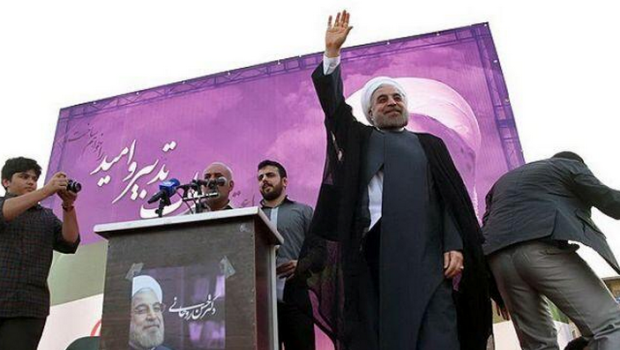Australia/Israel Review
Another win for the system in Iran
Jun 2, 2017 | Eyal Zisser

Eyal Zisser
The presidential elections in Iran on May 19 resulted in a clear, even resounding victory for incumbent President Hassan Rouhani, leader of the country’s reformist camp, over Ebrahim Raisi, who had the backing of Supreme Leader Ayatollah Ali Khamenei and represented the conservative hard-liners aligned with the Iranian Revolutionary Guards Corps (IRGC).
There was some concern in Teheran that despite Rouhani’s positive polls his rival would emerge with the victory, whether due to widespread voter fraud perpetrated by the security agencies or because of the broad support for Raisi in the country’s rural areas, where people are more traditional and less interested in change. But the final results, as stated, were unequivocal. Rouhani sealed his substantial victory as early as the first round after garnering around 7 million more votes than his rival.
The results point to a deep desire among voters for change. It is even fair to say that these elections proved, yet again, that the majority of Iranians have had enough of the ayatollah regime – headed by authoritarian spiritual leader Ali Khamenei, considered to be God’s emissary on earth – and of the power wielded by the IRGC. Most Iranians want their country to go back to being a normal, democratic country that maintains normal relations with the international community. Incidentally, this includes relations with Israel, which the majority of Iranians do not view as a sworn enemy.
The Iranian tragedy, however, is that it is entirely uncertain whether Rouhani is even capable of ushering in the desired change. After all, Iran is not a democracy, and the elections are far from expressive of the public’s true wishes. The election race was limited to establishment insiders who were vetted and approved by the Supreme Leader and his clerical cohorts. Candidates who truly challenge the Ayatollah regime and want to make Iran a real democracy – where the public has the final say instead of the religious clerics – are not even allowed to run.
As such, Iranian voters were forced to choose between the lesser of two evils, or the more palatable establishment candidate. Thus they chose Rouhani, who wants to open Iran, even if just a little, to the outside world and alleviate tensions with the West. In their view, Rouhani was preferable to Raisi, the ugly face of the Iranian revolution who was involved in the mass executions of regime detractors in the 1980s.
During the last election, four years ago, Rouhani was labelled the Iranian Gorbachev, the catalyst of change who would rock the establishment from the inside. It is possible that Rouhani genuinely intended to do just that, but the results have been disappointing. While he was able to strike a nuclear deal with the world powers and former US President Barack Obama, and even managed to rehabilitate the Iranian economy somewhat, his list of achievements ends there.
Some people accused Obama, and now Trump, of failing to show goodwill toward Iran and of not appeasing Iran, as some wayward supporters of the Ayatollah regime in the West had hoped. The fact remains, however, that while Rouhani was seeking reconciliation with the West, Teheran continued to call for Israel’s annihilation and the IRGC intensified its activities across the Middle East – from Iraq and Syria, to Yemen and even as far as the edge of the Golan Heights. It is difficult to foresee Rouhani, during his second term, accomplishing what he couldn’t in his first. Perhaps the problem is that Rouhani, who comes from deep within the Iranian establishment, doesn’t actually want to see the dramatic change his country so badly needs.
Iran has chosen, and the reformist candidate won. But this decision will not put Iran on a new path and will not make the difference the voters want. The situation in Teheran now, therefore, will remain the same as before.
Prof. Eyal Zisser is the Vice Rector of Tel Aviv University and the holder of The Yona and Dina Ettinger Chair in Contemporary History of the Middle East. © Israel Hayom, reprinted by permission, all rights reserved.
Tags: Iran






